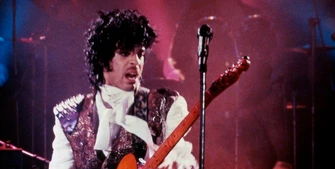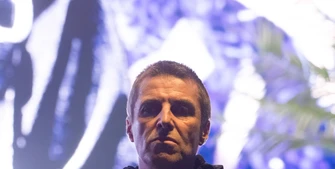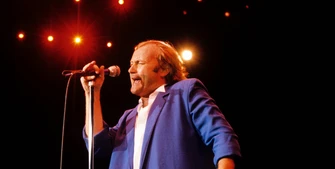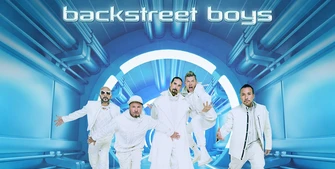Cho-Liang Lin on Why Film Music Deserves a Place in Concert Halls
Houston’s Cho-Liang Lin argues film music by John Williams and Tan Dun belongs in concert halls, merging artistic merit with audience appeal and financial necessity.
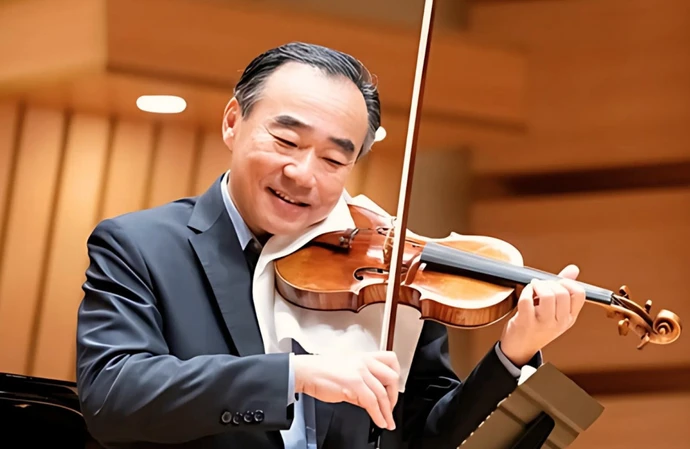
When Cho-Liang Lin performed Tan Dun's Hero Violin Concerto in Qingdao, China, with film projections of Jet Li and Donnie Yen battling behind him, he demonstrated a philosophy that has guided his programming for decades: film music belongs in concert halls alongside Brahms and Beethoven, not relegated to separate "pops" concerts.
Film composers create orchestral masterworks that deserve serious consideration instead of cultural segregation.
Dismantling False Musical Hierarchies
"John Williams fundamentally transformed film music by reconnecting it with late Romantic orchestral traditions," Lin explains. "For many young listeners, a film score might be their gateway to classical music."
Classical institutions create artificial distinctions between "serious" music and film scores. Consider the credentials:
John Williams: Studied at Juilliard with orchestration master Robert Russell Bennett; draws symphonic writing from Wagner, Holst, and Korngold
Tan Dun: Combines Eastern and Western orchestral traditions in Academy Award and Grammy-winning scores
These composers write for identical orchestras using identical instrumentation and harmonic language as concert repertoire.
During his 18-year tenure as Music Director of La Jolla SummerFest, Lin commissioned and premiered 54 new works, integrating film composers like Lalo Schifrin alongside Mozart and Schubert instead of segregating them into separate concerts.
"I would bring the composers out to talk to them. I'll even program something by really well-known contemporary composers like Oscar Winner John Williams or Tan Dun," Lin explains. "So I can say, Look, these people have been recognized with their Oscar trophies at home."
Programming Integration and Industry Reality
Lin places film-derived works within mixed programs instead of dedicating entire concerts to film music. "Throughout my career, I've always advocated for that balance," referring to his commitment to "balance reverence for tradition with genuine innovation."
Smart programming creates connections between film scores and classical repertoire. Williams' Imperial March shares harmonic language with Wagner's Ring cycle. Tan Dun's themes echo Bartók's folk music integration techniques.
Film music programming has become essential to orchestral survival worldwide. Companies like CineConcerts present approximately 400 live film concerts annually, while venues from London's Royal Albert Hall to New York's Lincoln Center coordinate synchronized movie screenings with orchestral performances.
The numbers demonstrate film music's commercial necessity:
Revenue generation: Pops performances, heavily featuring film music, generate 15-20% of orchestral ticket revenue annually, according to League of American Orchestras data
Consistent sellouts: Pittsburgh Symphony Orchestra's Star Wars and Harry Potter concerts typically sell out, serving as significant revenue generators
Programming frequency: The Chicago Symphony programs multiple film concerts each season, from Tim Burton's The Nightmare Before Christmas to Hans Zimmer's The Holiday score
Research from the International Film Music Conference reveals that 75% of classical musicians believe film scores enhance orchestral music appreciation. More significantly, 55% of young concertgoers cite film scores as their introduction to orchestral music, according to Classical Music Institute data.
Australia's Queensland Symphony Orchestra exemplifies successful integration. Their "Cinematic" series features 10-15% traditional classical repertoire alongside film music, with movie audiences embracing Beethoven and Brahms as enthusiastically as Star Wars themes.
Critical Debate and Professional Perspectives
The film music integration faces resistance from traditional classical critics. Telegraph Classical Music Critic Ivan Hewett argues that "the ousting of genuine classical music by the shiny simulacrum offered by film composers has nothing to do with aesthetic values, and everything to do with cash." He describes orchestral venues where "film music concerts are mushrooming in scale and number."
However, Telegraph Film Critic Tim Robey offers a different perspective: "Film music has all but defined my relationship to cinema... That score, like most of my favorite scores, is a work of art even detached from its cinematic context. I would kill to hear the whole thing played by an orchestra... The ever-growing popularity of film-music concerts, and airtime on the radio for these composers, is only to be lamented if the diet's too narrow or homogenized."
Professional musicians report different audience energy at film concerts. London Symphony Orchestra musicians describe audiences who "tend not to worry so much about the conformities of the concert hall, so they will express that they're excited. At big moments in films like the Indiana Jones series, some people really can't help themselves but move with the music."
Economic and Educational Necessity
"Box office is still a very important issue," Lin acknowledges. "I suspect that is the case with all orchestras around the world."
Classical organizations face declining subscription sales and aging audiences. Film music concerts consistently outperform traditional programming, particularly among younger demographics. The financial imperative has created a professional services industry around film music concerts, handling licensing and technical coordination that enables smaller regional orchestras to present high-production-value concerts.
Contemporary concert seasons increasingly blend film music with traditional repertoire. Instead of segregating film concerts into separate "pops" series, forward-thinking orchestras program film-derived works alongside canonical pieces, allowing audiences to identify connections between familiar themes and classical masterpieces they might otherwise avoid.
Canadian composer Mychael Danna, who has written both film scores and concert works, observes that "film and TV music might once have been considered the 'poor idiot cousin of classical music,' but that notion has changed in the past 10-15 years." He positions onscreen music as equal to "Bach writing for the church or Handel writing for the stage," with the same goal: "to entertain and enlighten the audience."
Gateway Function and Future Impact
"For many young listeners, a film score might be their gateway to classical music," Lin explains. Young audiences recognize Williams' themes from Star Wars or Harry Potter, providing an immediate orchestral connection. Teachers use familiar examples to explain orchestration, leitmotif development, and symphonic structure before introducing Wagner or Richard Strauss.
Film composers push orchestral boundaries. Extended techniques, electronic integration, and non-Western instrumentation appear in film scores before entering concert repertoire recordings. Contemporary classical composition increasingly draws from film music innovations, with orchestral works now routinely incorporating electronic elements, world music influences, and extended techniques.
"I've always believed that technology should enhance rather than replace musical fundamentals," Lin explains.
Building Future Audiences
Film scores provide familiar entry points for broader classical appreciation. Concert halls worldwide report that audiences who attend film music performances often return for traditional programming, building confidence through familiar contexts.
Educational institutions increasingly incorporate film score analysis into orchestration and composition studies. Students learn from Williams' orchestral writing alongside Ravel and Stravinsky, understanding how contemporary composers continue classical traditions through different media.
Industry data confirms that thoughtful film music integration strengthens classical programming when handled with intelligence and respect for orchestral traditions. The question facing classical institutions is no longer whether film music belongs in concert halls, but how quickly they can adapt programming to include excellent orchestral writing regardless of its original context.
As Cho-Liang Lin demonstrates through his festival programming, the path forward requires building bridges between popular culture and classical traditions while trusting audiences to recognize musical quality. Film composers like Williams and Tan Dun create orchestral literature deserving serious consideration alongside any contemporary classical composer.
The artificial boundaries between "serious" and "popular" orchestral music serve no one. Concert halls that embrace film music programming report measurable improvements:
Stronger box office performance across all programming types
More diverse audiences spanning multiple age demographics
Enhanced community engagement through familiar cultural touchpoints
Critics may debate artistic hierarchies, but orchestras worldwide have already voted with their programming decisions. Film music has earned its place in classical concert halls through compositional merit, audience appeal, and economic necessity.

